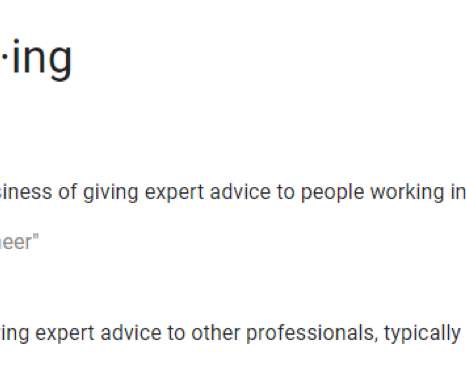What is consulting?
Tom Spencer
FEBRUARY 1, 2020
Chief topics central to the job description of HR consultants are, among others, organizational changes, change management, terms of employment, learning & development, talent management and retirement. This post provided a brief overview of consulting, and attempted to answer three questions that students often have about the industry.












Let's personalize your content